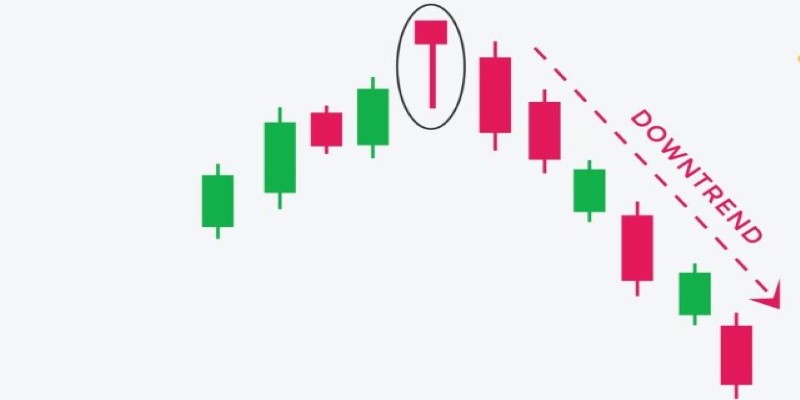What is a Condominium?
Feb 13, 2024 By Susan Kelly
Advertisement
Similar to an apartment, a condo is a merchandisable property. For various reasons, homebuyers may choose a condo over a single-family home. A condominium is another low-maintenance diminishing choice for seniors. Condominium fees are confusing. Many people have misconceptions about how condo fees are determined, where the money goes, and how expensive condo living is compared to single-family or townhome living.
However, misunderstandings concerning condo ownership frequently prevent prospective buyers from considering them. Here, we clear up some of the most widespread myths regarding condominiums.
Why own a condominium?
 Condominiums are an excellent choice for downsizing or budget-conscious purchasers because they are typically less expensive than single-family homes and require less care.
Condominiums are an excellent choice for downsizing or budget-conscious purchasers because they are typically less expensive than single-family homes and require less care.
Older people who want a less physically demanding home may find this a desirable feature. For someone who wishes to reside in the middle of a big metropolis, condos might be a desirable option.
Condo owners pay recurring monthly maintenance and repair costs for the complex's standard amenities, including the lawns, pools, lobbies, elevators, and recreation rooms.
Money Misconceptions About Condominiums

- Condominium Fees are a rip-off.
Regarding condominium fees, most buyers are fully informed of the applicable fees upon purchasing any condo properties, whether pre-selling or ready for occupation. These costs are typically included by developers and brokers when submitting condo unit buying applications.
Many purchasers view condo fees as an added expense compared to owning a home. It is crucial to consider what these fees cover before claiming they are a waste of money. Standard condo fees typically contribute to the upkeep and maintenance of the building. Still, they may also include sewer, heat, water, debris collection, and in some circumstances, cable TV and electricity. Think about the price you would pay for these products if you owned a home. Also, remember that you won't have to shovel the snow or trim the lawn in a condo. Therefore, you will ultimately have to contribute to the cost of hiring someone.
Excessive condo fees may indicate inadequate financial management of the condominium board, but you won't know for sure unless you read the condominium documents. Also, remember that the condo's board of directors, which consists of owners like you, decides on the condominium fees. In other words, these costs are set by owners who also have to pay them, and thus nobody benefits from them.
- A condominium is just like homeownership.
A real estate buyer who purchases a condominium unit becomes the condo unit owner. Most homeownership privileges will soon be accessible to the condo buyer. You acquire most of the rights of purchasing a freestanding property when you buy a condominium unit. This is because a condominium entails shared ownership regarding the rights that condo owners do not possess.
However, because the buyer would become a stakeholder of the condo community, these rights are constrained.
Therefore, you won't have as much freedom as you would in a house, even though you have the right to change your unit. Because most condo bylaws call for hiring a licensed professional, you might be unable to improve the electrical or plumbing by yourself.
Additionally, the areas of your unit that are referred to as "community property," such as the courtyard, windows, and balconies, could not be within your control.
Condominium owners must also pay monthly or annual parking fees, homeowners' association dues, and fees for any additional services offered to the community on top of their mortgage payments. Due to its community ownership, you must pay condominium dues to maintain the property.
- Condominium Fees should remain constant.
Condominium fees, unfortunately, seem to increase frequently, much like other costs, due to the building's operating expenses and inflation. Condo fees should be set using additional funds to cover significant repairs and the expected costs for the upcoming year. No one is making money, and owners will have to pay the difference if they are too high or too low compared to the building standards.
Most condo owners will find it difficult to escape a necessary expense, whether because the board tries to put off repairs to keep costs down or because owners want to sell to avoid paying their fair part.
Intelligent buyers will demand a discount for a building with inadequate maintenance or exorbitant condo fees. This discount is probably more expensive than fixing the issue from the start, as is frequently the case with real estate.
- Special Assessment Fees woes
Special assessment fees refer to a sum added to your monthly condo costs. It is gathered to cover additional expenses for tasks like restorations or to address money problems.
Even a professionally run condominium can be the victim of a "special evaluation." When the standard condominium fees (and the reserve fund they contribute) are insufficient to cover a significant repair, condo owners must pay an additional (sometimes hefty) cost. Many condo owners believe that their monthly fees would cover everything; however, as a condo owner, you are always responsible for the upkeep of the building.
Owning a condo is comparable to owning a single-family home. If you regularly set aside money for repairs, a sizable unplanned cost may force you to dip into your savings. Special assessments are often better for condo owners than the long-term alternative of increasing condo rates. This is because a single-time fee will pay for repairs without depreciating the value of each unit in the building.
Bottom line
Many myths that discourage homebuyers from considering a condominium or that make them angry and frustrated once they own one frequently result from an ignorance of what owners are ultimately accountable for and how condo ownership works. There are many poorly run condos, which might cause financial issues. However, since this punishment equally applies to the board members, no condo board seeks to get a payment or penalty from owners. Owners will have more control in a single-family home, making expenses easier to bear and possibly less obvious. Perhaps this is why prospective homeowners incorrectly believe this kind of ownership is much less expensive.
Advertisement
-
 Business Nov 04, 2024
Business Nov 04, 2024Financial Crises: Identification and Economic Significance of Avoiding Them
From asset bubbles to debt defaults and preventive policies, learn how to spot financial crises and hold their economic relevance
-
 Currency Feb 27, 2024
Currency Feb 27, 2024FSB and the “Global Stable Coin”
First introduce the tasks and functions of FSB, and then introduce the definition of stable coin and the proposal and definition of "global" stable coin, finally introduce three differences between GSC and ordinary stable coin and other crypto assets—it has a stable mechanism, combines multiple functions and activities, and can be used across jurisdictions.
-
 Currency Oct 20, 2024
Currency Oct 20, 2024Is the Bull Run Over? Understanding the Hanging Man Candlestick
The Hanging Man Candlestick Pattern is a key tool for traders, offering early signals of a potential trend shift from bullish to bearish. Learn how to effectively spot this pattern, understand its implications, and incorporate it into your technical analysis toolkit
-
 Know-how Jan 13, 2024
Know-how Jan 13, 2024An Analysis of F and G's Life Insurance
FGL Holdings is a family of companies that has been serving the insurance and retirement needs of its customers through the growing independent agency sector for nearly 60 years. Policyholder financial security is a top priority for the F and G Group of Companies (FGL Holdings). Among the several annuity plans available from Fidelity and Guaranty, the Fixed Indexed Annuities stand out as particularly advantageous.
